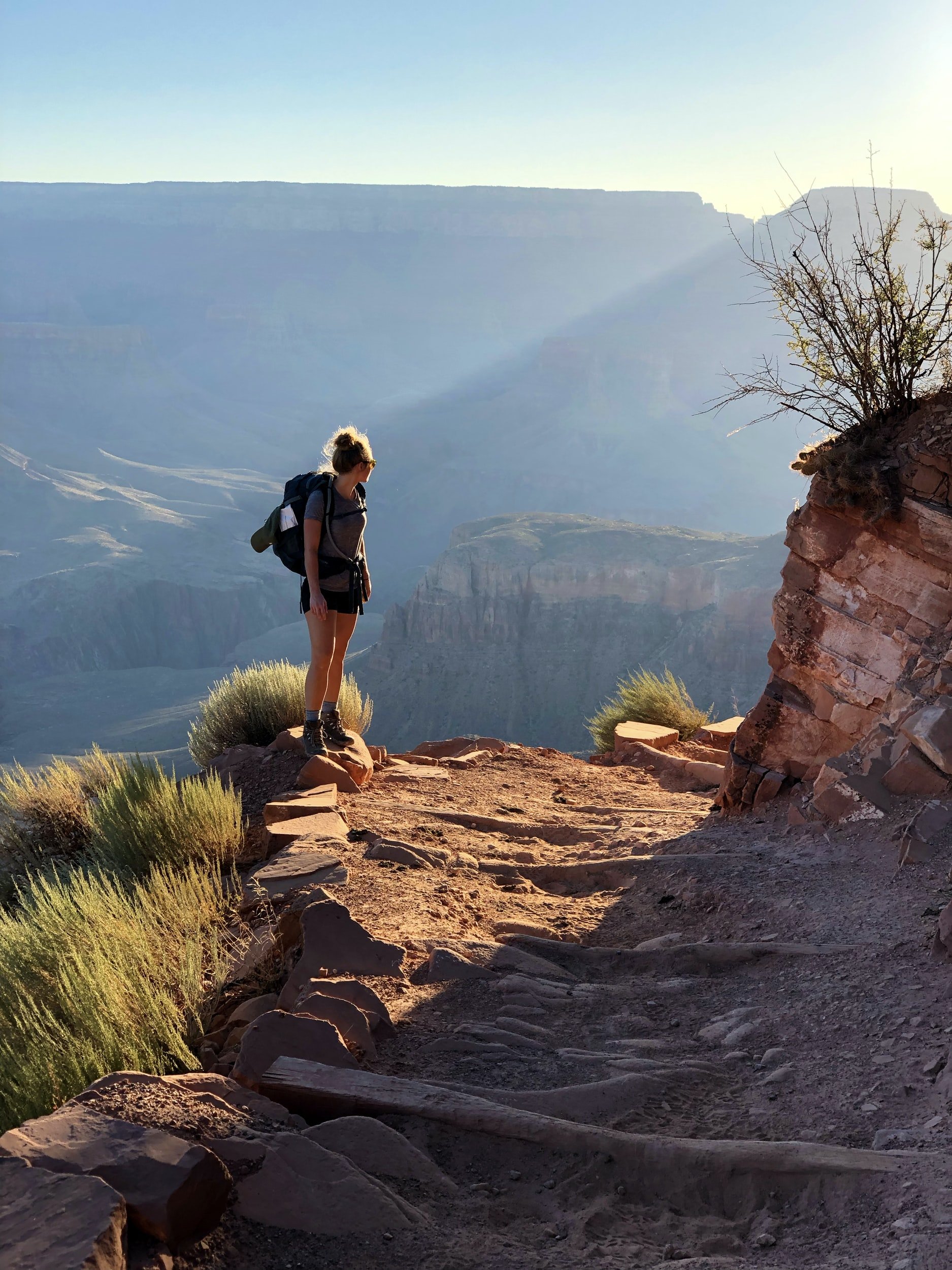Learning to Cross the Canyon
I was in conversation with a student about learning and how the knowledge we seek seems to be bottomless; it can be inspiring and exciting, but also overwhelming at times.
Often, when one is in the novice phase of any new endeavor, the overall idea seems straightforward and simple: all we need is a guide or teacher to help us get going and we’ll be on our way, right? It is challenging when a student first jumps into voice lessons assuming that a couple of tricks is all it takes to get them going on their dream. As someone who has spent decades of dedicated study, rigorous practice, iteration, and overhauls, it is almost offensive when someone expects to master those coordinations with some magical voice lesson. I was teaching a lesson of this nature when the image of a canyon came to mind and I love it as a metaphor for building patience in our learning process.
Imagine you are walking along a flat terrain and up ahead you see a small group of people celebrating and waving at you to come join them! They look so happy and accomplished. Their work seems effortless and polished. You can’t wait to get over there and it looks like you are actually not that far away. You walk bravely towards this group with excitement and inspiration…until you get closer and gain enough perspective to see that there is a massive canyon in between. How is this possible? It is HUGE?! Is there a bridge somewhere? Maybe a staircase or ladder? Where do I even begin?!
“Is there a bridge somewhere?”
In my teaching, I have seen this pattern countless times and it has made it easier to notice it within my own learning. There is always a daunting wake-up moment to just how much there is to learn, but the cool thing is, each time we learn something new, we get more resourceful in our ability to jump into something else. Going back to the canyon metaphor, it is pretty uncommon to attempt to cross a huge canyon alone without guidance. You can look at the people on the other side and see what experts helped them and work backwards to get an idea of where you might begin to look for a guide, but those paths that are visible might be inaccessible for most of us who are just starting out. Those experts who are sought out to guide ascending the canyon wall might not be the right experts to get you prepared for your descent into the canyon! They may have forgotten the special tools needed to begin that process. They might have forgotten just how much information is needed for a complete novice.
Using singing as a parallel example, beginners need to discuss gear, attire, proper preparation, hydration, and so much more, not to mention the fears of approaching the huge amount of “firsts” (first lesson, first time performing, first competition, first audition, first rejection, first bad review, etc.). In lessons, performance, practice, and collaboration, we build our toolbox and even start to look for paths we might venture down to get a little deeper into the canyon. There is a nice period where we feel like we know what we’re doing and even new endeavors feel supported by the work we’ve done and our growing confidence. There are surprises where we think we’re almost there only to learn that we’ve taken a path that won’t work or needs much more learning to traverse. Only when we finally reach the bottom where we have the reprieve of being on stable ground are we able to look up and grasp just how much we don’t know. That said, we have many skills which will come in handy as we ascend that approaching canyon wall and help us know where to start in our research of how to ascend.
Only when we finally reach the bottom where we have the reprieve of being on stable ground are we able to look up and grasp just how much we don’t know.
It is exciting to learn new things and the amazing things we see others accomplish can inspire amazing things in ourselves, but it is important to prepare for the shifts in perspective each part of the process brings. In doing so, we can have compassion for ourselves and our students as we take on these canyons of knowledge.


